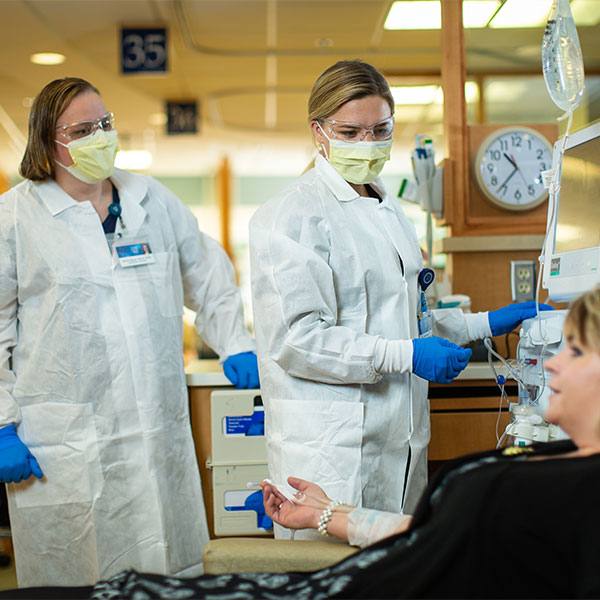-
Biotherapeutics
Science Saturday: A discovery step toward cell replacement therapy for diabetes

In what could be a step toward cell replacement therapy for diabetes, Mayo Clinic researchers have discovered how to manufacture cells capable of generating a hormone that regulates low blood sugar. Quinn Peterson, Ph.D. and his team have developed a new method of mass producing a cell product containing the hormone glucagon that is capable of protecting against hypoglycemia in animal models. Dr. Peterson’s research is published in Nature Communications.

“We now have the ability to manufacture large quantities of an important cell type that is necessary to prevent hypoglycemia and regulate blood glucose in patients with diabetes. Generating pancreatic cell types from renewable sources holds promise for cell replacement therapies for diabetes,” says Dr. Peterson, principal investigator.
Alpha cells in the pancreas produce glucagon, which is released to correct low blood sugar levels. However, in diabetes these alpha cells become dysfunctional, leaving patients susceptible to hypoglycemia (low blood sugar). Left untreated, hypoglycemia can cause a patient to fall into a coma and die.
Biomanufacturing cells
The new cell product is human tissue derived from pluripotent stem cells, which have the capacity to self-renew and convert into alpha cells containing glucagon. When transplanted into animals, Dr. Peterson’s team discovered, these cells defended against hypoglycemia. Researchers hope someday these biomanufactured cells could restore cell function lost to diabetes.
With capabilities from the Center for Regenerative Medicine, including the Center’s Biotrust and the Center’s Process Development Laboratory, Mayo Clinic has the ability to ramp up large scale manufacturing of cells right on site. Quality and regulatory teams are working on new standard operating procedures that provide the foundation for current Good Manufacturing Practices needed to comply with Food and Drug Administration regulations. That could eventually pave the way for clinical trials geared toward exploring the safety and effectiveness of manufactured cells as a treatment for Type 1 diabetes.
“If successfully introduced into clinical use, these cells could dramatically change patient care for diabetes. Rather than rely on routine blood checks to prevent hypoglycemia and emergency room interventions to treat severe hypoglycemia, in the future, patients may be able to receive a transplant of living medicine that will both monitor blood glucose levels and administer corrective doses of glucagon,” says Dr. Peterson.
Dr. Peterson estimates that the first test of these cells in human clinical trials could take place by 2022.
This work was supported in part by benefactor gifts to the Mayo Clinic Center for Regenerative Medicine, including the Stephen and Barbara Slaggie Family, J.W. Kieckhefer Foundation and the Khalifa Bin Zayed Al Nahyan Foundation. Colleagues at Harvard University and University of Gothenburg participated in this study.
###







